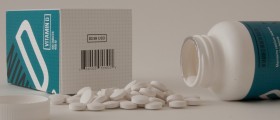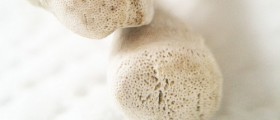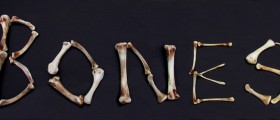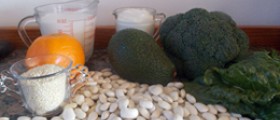
Calcium is quite a necessary mineral for proper functioning of our body. In fact, it is present in our bones and teeth, as well as in other parts of our body such as muscles, blood and cell fluids as well as the nervous system.
Bones and Calcium
Basically, our bones change all the time, especially during our teenage and adolescent years. Then, we need enough calcium to keep our bones hard and healthy. Calcium deficiency can lead to fragile bones which are low in density.
The bone mass in our body increases until we reach the age of 30. Then, matters only get worse, since regeneration and improvement levels start to drop. By the time we reach old age, our bones will significantly have lost their density.
So, it is in our best interest to make our bones as strong as possible, helping them withstand this harsh natural process called resorption. Moreover, we need calcium for many other reasons. Some of these are preventing high blood pressure, keeping kidney and heart diseases at bay and decreasing chances of suffering from colon cancer.
Dosage of Calcium for Infants
As far as milligrams of this mineral are concerned, adequate amounts for your baby may range from 210mg for babies younger than 6 months and 270mg for babies up to 1 year old. However, some sources may claim that adequate amounts of calcium in these cases are 600mg a day. Interestingly, different countries seem to give different pieces of advice on this matter.
Initially, babies get their calcium from milk through breastfeeding or through formula. However, breast milk has less calcium than formula does and the calcium in breast milk is much easier to be absorbed by the baby's body. Since formula offers a less absorptive variant, one needs to get more of this calcium. Additionally, the mother's body provides the baby with just enough of this mineral through each feeding.
Other Sources of Calcium
Once your baby stops being breastfed, it can receive calcium from numerous other sources. For example, soy milk and regular milk are always good options. Additionally, cheese and yogurt are also packed with calcium and can be incorporated into many tasty and healthy meals.
Blackstrap molasses, black eyed peas, lentils, sardines, spinach, broccoli, okra, salmon, squashes, oranges, pinto beans, raising and chickpeas are all excellent sources of calcium, both for you and your child. Moreover, you can opt for calcium-fortified juices and cereals, tofu and prunes, as well as watercress and parsley.

















Your thoughts on this
Loading...